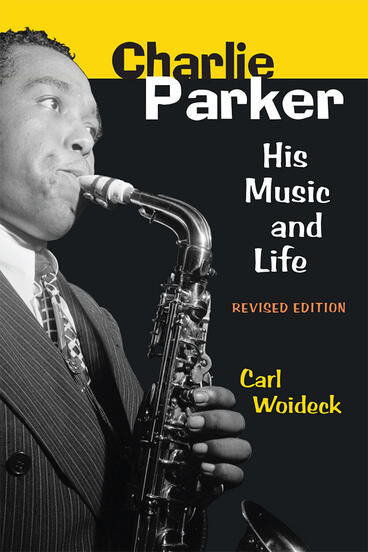A fresh take on Charlie Parker’s artistic evolution and major achievements as a jazz improviser, in time for his centennial
Description
Saxophonist Charlie Parker (1920-1955) was one of the most innovative and influential jazz musicians of any era. As one of the architects of modern jazz (often called "bebop"), Charlie Parker has had a profound effect on American music. His music reached such a high level of melodic, rhythmic, and harmonic sophistication that saxophonists and other instrumentalists continue to study it as both a technical challenge and an aesthetic inspiration. This revised edition of Charlie Parker: His Music and Life has been revised throughout to account for new Charlie Parker scholarship and previously unknown Parker recordings that have emerged since the book’s initial publication. The volume opens by considering current research on Parker’s biography, laying out some of the contradictory accounts of his life, and setting the chronology straight where possible. It then focuses on Parker’s music, tracing his artistic evolution and major achievements as a jazz improviser. The musical discussions and transcribed musical examples include timecodes for easy location in recordings—a unique feature to this book.
Carl Woideck is a retired Senior Instructor who teaches part-time at the University of Oregon School of Music and Dance.
Reviews
"Music students will find Woideck's informed analysis of much interest; and the general reader will benefit from a greater appreciation of the skill and creativity of this highly influential artist."
—L.A. Life
"Woideck is to be commended for getting past the trap of presenting Parker as a tragic artist in favor of concentrating on his art—and on the meaning of that art for the nation and the world. . . . an insightful and informative addition to the literature of jazz."
—Kansas City Star
"Even readers who cannot play readers who cannot play [the passages featured in the text] or follow them while listening to a recording will find that Woideck's commentaries, enriched by pertinent anecdotes and a wealth of other historical material, deepen their understanding of the many qualities that made Parker a musical giant—his inventiveness, humor, virtuosity and swing-ability."
—Michigan Today

